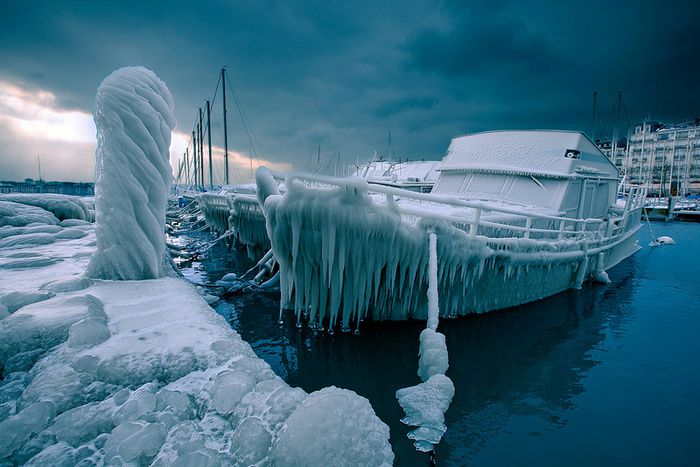
INTERVIEW: Alok Jha Trapped in Antarctica
Published on
On Christmas Eve last year, 77 scientists and explorers got stranded in Antarctica for 9 days after their ship, the MV Akademik Shokalskiy, got trapped in ice. Cafebabel caught up with Guardian science correspondent Alok Jha, who was part of the expedition. We spoke about reporting from Antarctica, his future plans, and the secret behind Harry Potter’s invisibility cloak…
Cafébabel: So what motivated you to embark on this expedition?
Alok Jha: Scientists at the University of New South Wales in Australia were organising this expedition which was a hundred years on from the original Douglas Mawson expedition. [Mawson] was one of the first explorers of Antarctica. I thought it would be a good opportunity for two things, one it’s an amazing place to access, you don’t have very much access to these kinds of places as a reporter. And personally it is somewhere I have always wanted to go.
Cafébabel: Can you describe the work you were doing before being struck in the ice?
Alok Jha: I was with my colleague Laurence Topham who was taking photos and making videos. We just treated the ship as a place we were reporting from.
Cafébabel: What was the general sentiment when you realised that the boat was struck?
Alok Jha: What happened was that we woke up one 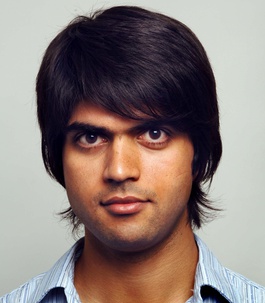 morning and we were stuck. Some people were much more stressed than others. Other people knew much more than others. So it is like real life, it’s messy. But Laurence and I were I just very busy and it was a beautiful place to be to be honest.
morning and we were stuck. Some people were much more stressed than others. Other people knew much more than others. So it is like real life, it’s messy. But Laurence and I were I just very busy and it was a beautiful place to be to be honest.
Cafébabel: Were you glad things turned out that way, from a reporter’s perspective?
Alok Jha: I think there are lots of reasons why it would have been good to come home at the right time. But I’m happy it happened because it was exciting to be involved in it. It was confusing. It’s all the unexpected things that are the most interesting and it shows you a lot about people. About how you react to those things.
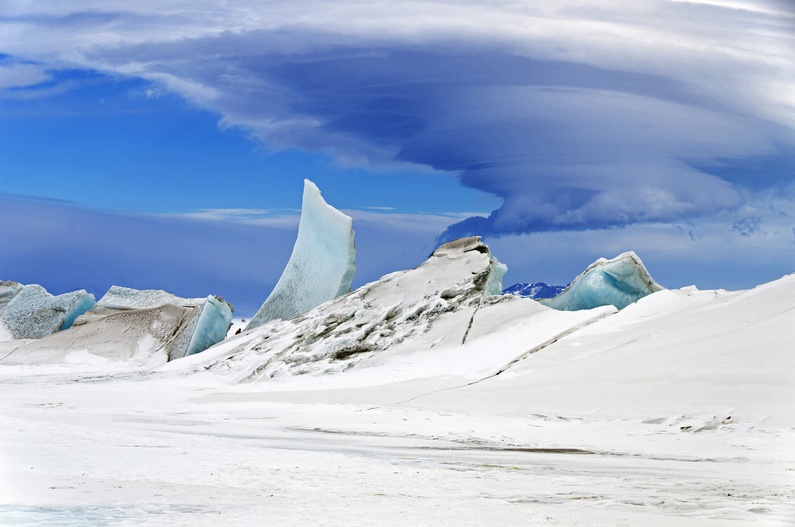 In the documentary and also in the articles, what we tried to do is tell a very honest, fair account of what was going on. So it is not one person’s account, it’s multiple accounts put together. Because one person’s account won’t give you the true story. As a reporter your job is to not overhype anything or underplay anything but to accurately reflect.
In the documentary and also in the articles, what we tried to do is tell a very honest, fair account of what was going on. So it is not one person’s account, it’s multiple accounts put together. Because one person’s account won’t give you the true story. As a reporter your job is to not overhype anything or underplay anything but to accurately reflect.
Cafébabel: Some researchers criticised the expedition as a glorified tourist trip that seriously dented real scientific research in the region. What do you think about this?
Alok Jha: The expedition got trapped obviously and then were rescued by Chinese and Australian ice breakers, and the French came too. They had other work to do. It is very hard to get down the Antarctic and any delay to their plans is going to cause some sort of damage. It is important to research the Antarctic, which is partly the reason we were there.
But Antarctica is not owned by anyone. It is not owned by scientists. Anyone has the right to go there so actually it is not up to scientists to feel bad about [that]. I do feel sometimes scientists and science organisations have an arrogant attitude toward what they do, so if you’re not doing science then you’re not worthy. Science is an important intellectual exercise only as far as members of the public want you to do it. And there are no scientists who are beyond all of that.
 Cafébabel: Live tweeting and publishing from the South Pole must have been a bit tricky, how did you manage that?
Cafébabel: Live tweeting and publishing from the South Pole must have been a bit tricky, how did you manage that?
Alok Jha: In summary we had a BGAN (Broadband Global Area Network) satellite connection which goes all the way down to the tip of Antarctica. It was very slow. We would connect for maybe half an hour a day, we would send lots of tweets, vines and things and then do the same thing the next day if we could. The most difficult time was being outside when it was really bad weather or when it was windy. Computers wouldn’t work because they were too cold or the battery would disappear. During the time we were stuck ironically, we had the best connection because we weren’t moving.
So I understand you're a pretty adventurous person, having not only you reported live from Antarctica, but you also floated aboard a zerogravity flight with the European Space Agency, had your genes sequenced, have been a scientific guineapig to test the effects of the Atkins diet, hung out with daredevil botanists in the mountains of Lebanon. Do you have any plans for this weekend?
Alok Jha: I am actually not that adventurous at all! This adventure in Antarctica is the most adventurous thing I have done. Even that was relatively contained in itself. If you ask any of my colleagues or friends, I’m someone who doesn’t like to leave cities, wifi connection or good coffee very much. So what I’m going to do next? I’m probably going to hang out in a library to work on my next book..
Cafébabel: Can you tell us a bit more about your next book?
Alok Jha: It’s about water as a cultural object. It’s about how human beings have created this idea of what water is. Obviously chemically it is very important, it is the reason why life started. So I want to tell the story of how it plays an important part in human society, in the mythology.
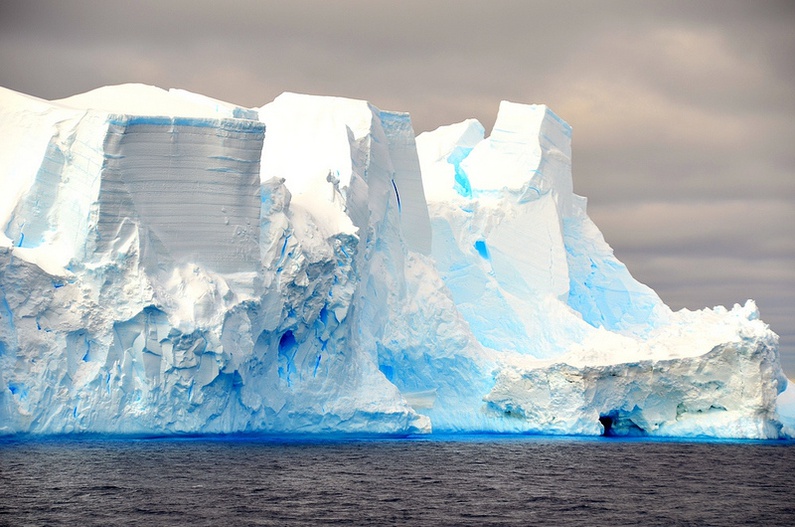 Cafébabel: The blurb of your first book says the reader, “Will discover how Harry Potter's cloak of invisibility works.” Needless to say I am very curious about that...
Cafébabel: The blurb of your first book says the reader, “Will discover how Harry Potter's cloak of invisibility works.” Needless to say I am very curious about that...
Alok Jha: That book was basically written a few years ago, as a set of essays about 35 bit of science that I find quite interesting, and packaged up in a way it is more approachable. And one of the chapters happened to be about invisibility and the reality of invisibility. Obviously we all know about Harry Potter’s cloak of invisibility. I can’t tell you how it works because that was actually magic. The thing I wrote about is called ‘metamaterial’ which is a sort of nanotechnology material. Metamaterial has fine structure surfaces that bounce light around in a way that if you put it in between you and an object, the light bounces into your eyes, deflecting it completely so you don’t see the object. People are already using them to, for example, cover a fighter jet in such a way that radar can’t bounce of it and it becomes invisible. They are getting to the point where you can start making invisible light. If I cover myself with it now, you would see through me essentially.
Cafébabel: Any plans to go back on a ship anytime soon?
Alok Jha: If someone offered me a cruise right now and I had nothing else to do, yeah I’d go for that! Why not? Somewhere interesting, somewhere warm maybe, where I don’t have to do so much work. I need a holiday!



